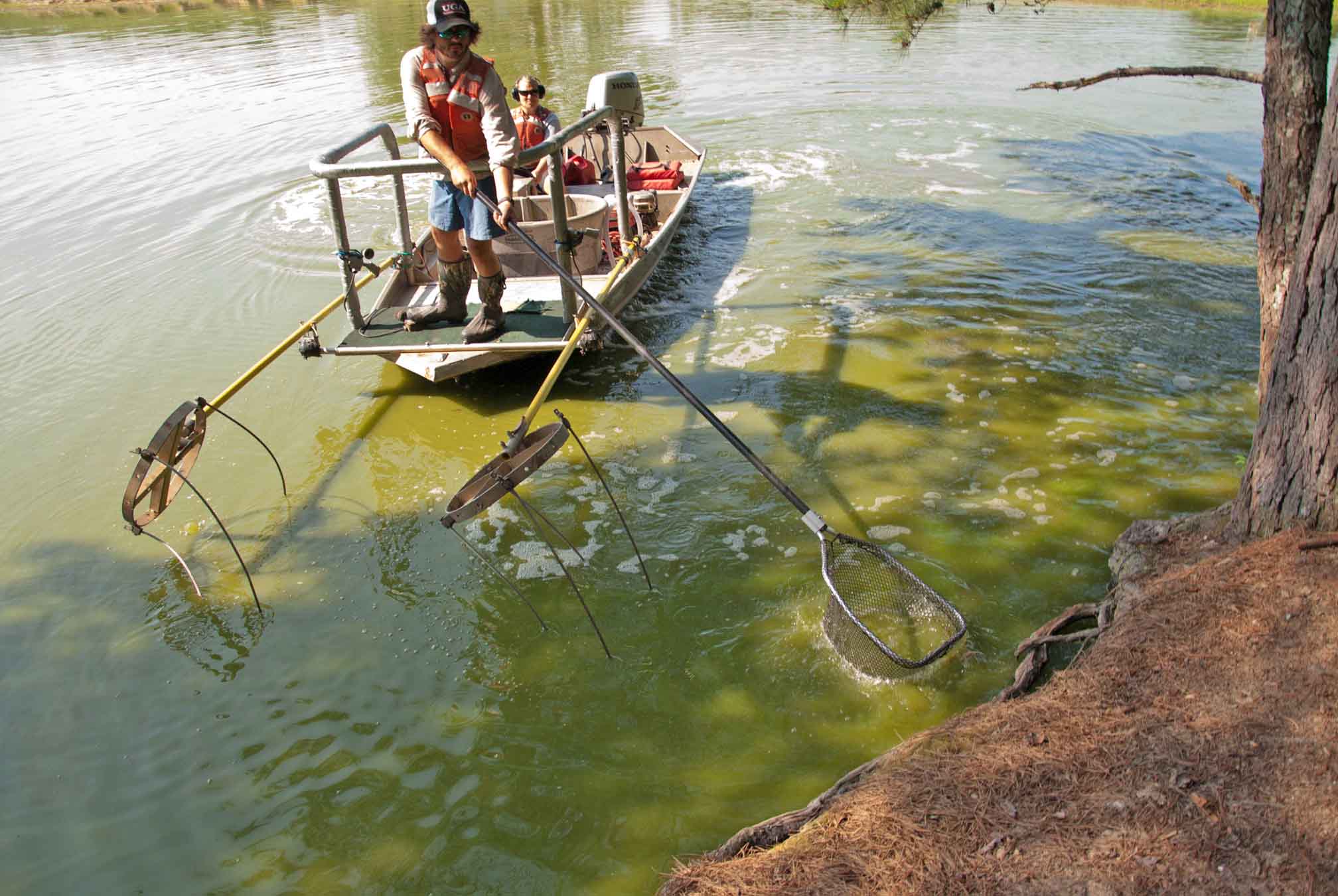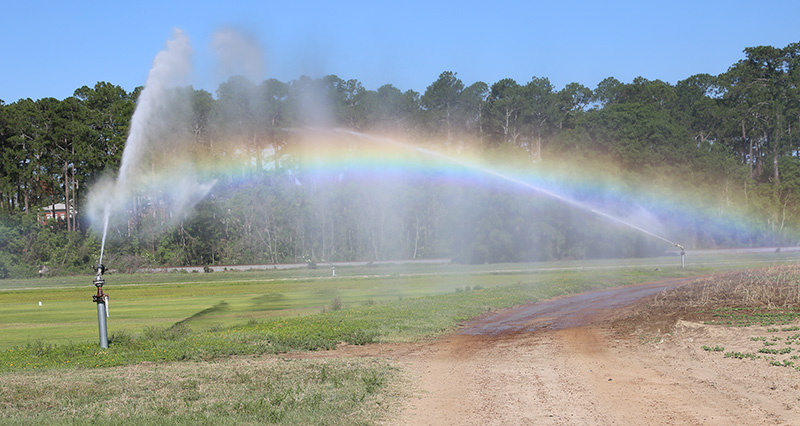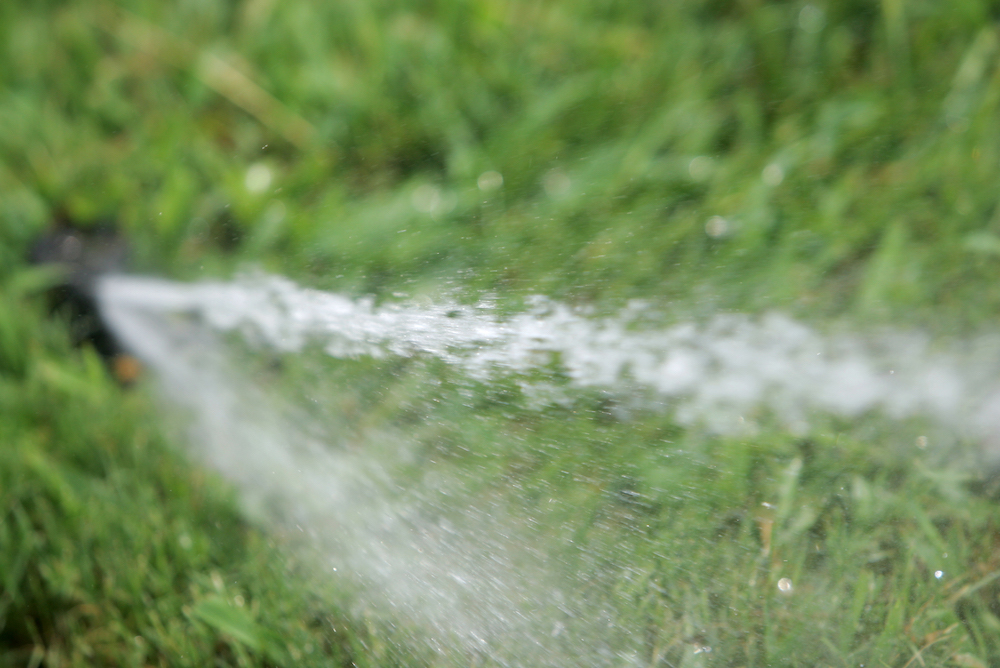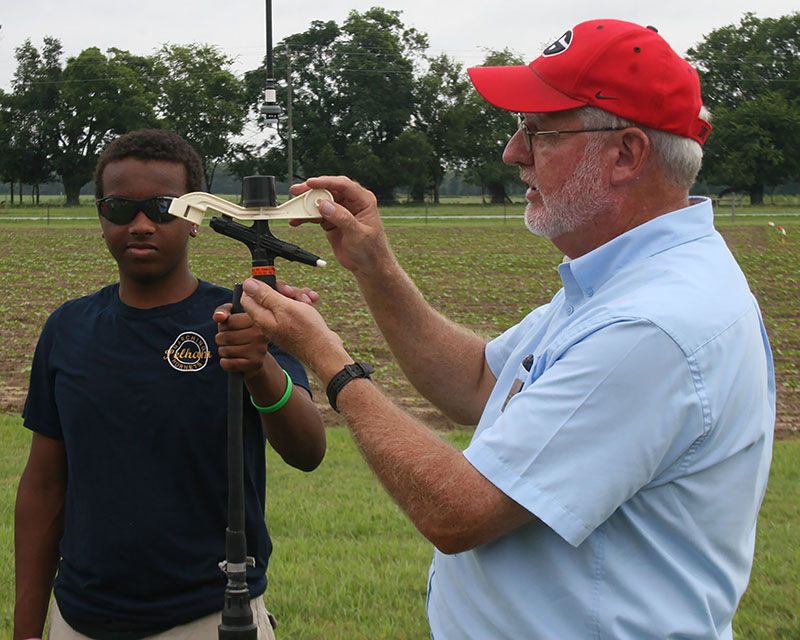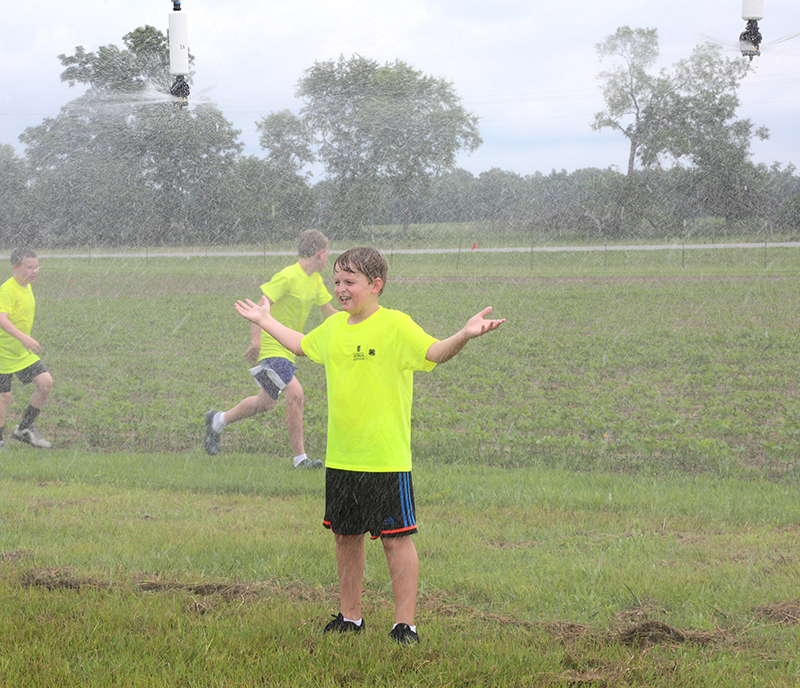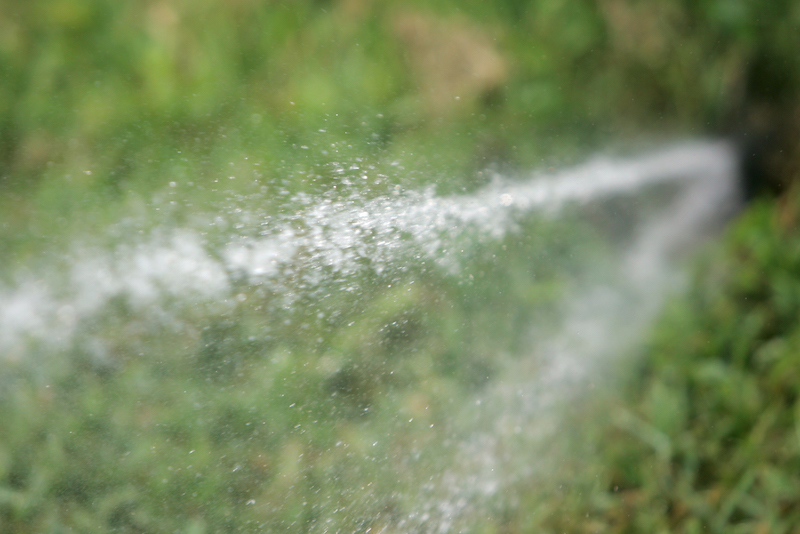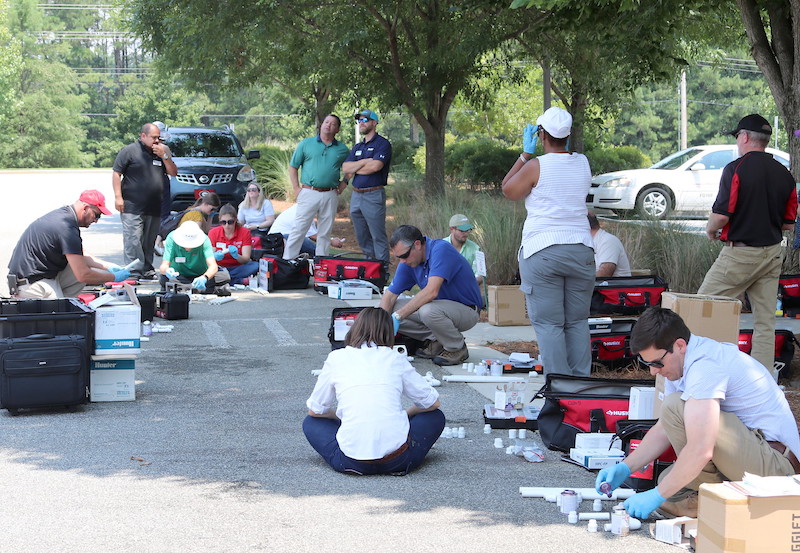 CAES News
CAES News
Urban Irrigation
Helping farmers use water wisely is part of Extension’s mission. Now, a University of Georgia Cooperative Extension program is helping county agents in urban areas teach their clients how to manage water wisely in the landscape, especially through irrigation systems.

